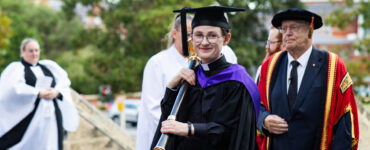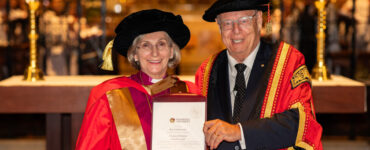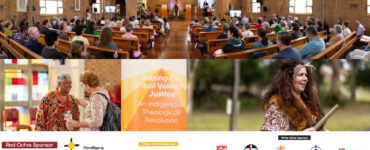Associate Professor Mary Coloe pbvm
Merryl Blair (Stirling Theological College) and I (Yarra Theological Union) have been fortunate to work together in an international dialogue between the Catholic Church and the Church/Disciples of Christ. Our committee has been meeting annually for six years with our topic being Christians, Formed, and Transformed by the Eucharist. This year we completed our final report, which is now with the leadership of our two churches and hopefully will be published next year. There has been constant, mutual learning in this process, along with growing friendships and appreciation of the gifts each community offers. The differences are not to be looked upon with suspicion or criticism, so much as to ask – what theology lies behind this different approach, what hidden riches might we discover by examining the differences with open minds? Recently, the latest report from the Anglican Catholic dialogue[1] was published and as a Catholic, I was heartened to read the following paragraph:
“While the Commission recognises that some decisions regarding ministry made by provinces of the Anglican Communion are not open to the Roman Catholic community, others potentially are, e.g. a female diaconate; a fuller implementation of licensed lay pastoral assistants; the priestly ordination of mature married men (viri probati); and the authorisation of lay people to preach.”
This Anglican-Catholic dialogue, along with many others, is opening cracks, and shining lights on possibilities that even 20 years ago seemed impossible within the Catholic Church. That such a statement is on a Vatican website encourages my continual work in ecumenism.
[1] Walking Together on the Way. http://www.vatican.va/roman_curia/pontifical_councils/chrstuni/angl-comm-docs/rc_pc_chrstuni_doc_20180521_walking-together-ontheway_en.pdf

Yarra Theological Union is an inclusive and welcoming community, Catholic by tradition and ecumenical in spirit. We are committed to being a community of scholarship, prayer and pastoral care. We offer theological education and ministerial formation, open to those who seek educational and personal transformation in changing contexts. Our mission is to equip people for various ministries in the churches: parishes, schools, hospitals, church agencies and in the world at large.







Add comment